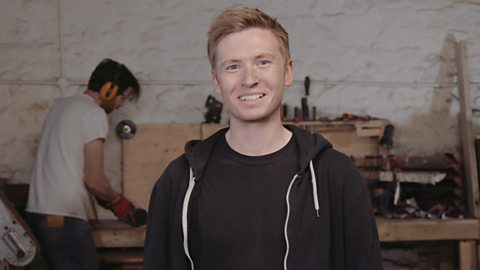Meet Lydia, 24, from Dorset, who has set up her own zero waste food shop. Part of our Bitesize world of work series.
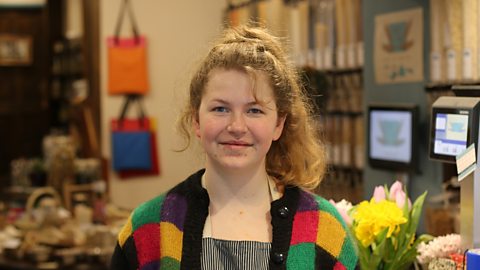
Although I worked in customer service from the age of 15, I never thought that I would own a shop.
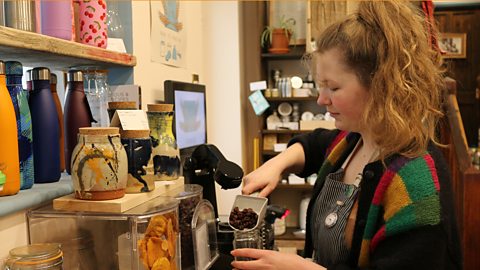
How would you describe your job?
Firstly IÔÇÖm a shopkeeper. Secondly, IÔÇÖm a campaigner. Thirdly, IÔÇÖm a customer service person. At a zero waste shop you can refill your own containers with products, to avoid any packaging waste. We also avoid food waste as you can buy as much or as little as you need.
What skills do you use?
I use time management, customer service skills, web designing, admin (I send a lot of emails) and building a rapport with the community. I do a lot of heavy lifting. I also use creativity ÔÇô I designed everything for the shop.
What subjects do you draw on?
This shop aims to help protect the environment, so the background knowledge I have from Science is very important. Maths is also important ÔÇô we sell products by weight, so we have to subtract the weights of containers. We also have to help some customers understand what the weight of a product is in pounds and ounces, as we have to weigh everything in grammes under EU law. I never thought food and nutrition would come in handy. As we sell whole food, I need to have a lot of information about what the food can be used for. I also use ICT in my everyday work.
What subjects did you study?
I achieved five GCSEs including Art and Drama and I did a BTEC in Interior Design. I wasnÔÇÖt sure that I wanted to do interior design, but I really enjoyed one of my units and wanted to explore that further, so thatÔÇÖs why I did a degree. During university I realised that it was not what I wanted to do as a career, so I changed my mind again. During my second and third year I focused on sustainability.
How would you describe your journey?
I did Interior Architecture as a degree. I finished at university and I was at a crossroads. I didnÔÇÖt want to move to the city to pursue architecture. I was always conscious that I wanted to live a waste-free lifestyle. Although I have worked in customer service since the age of 15, I never thought that I would own a shop. However, a lot of my family members did, which is quite interesting. In the future I may study environmental science.


Top tips
IÔÇÖve been very fortunate but, if it had been a smooth ride, I probably wouldnÔÇÖt be where I am now.
Just stick with it: itÔÇÖs okay to make mistakes. ThatÔÇÖs how I learnt some of my skills.

What to expect if you want to be a business owner
The salary and working hours when you own a business can vary enormously but what's most important is that you work hard and love what you do.
Working for yourself looks different for each person and each business, but in general it means you:
- run your own business and are responsible for its success
- can decide how, when and where you do your work
- charge an agreed, fixed price for your work
- sell goods or services to make a profit
- can hire people at your own expense to help you or to do the work for you.
You can be both employed and self-employed at the same time. You can work for your employer during the day, for example, and run your own business in the evenings and at weekends. ItÔÇÖs important to for advice if youÔÇÖre not sure if youÔÇÖre self-employed.
You can , through the governmentÔÇÖs business support services, for example, for advice about tax or about how to find funding to start your business.
This information is a guide (source: ).
For careers advice in all parts of the UK visit: , , and .

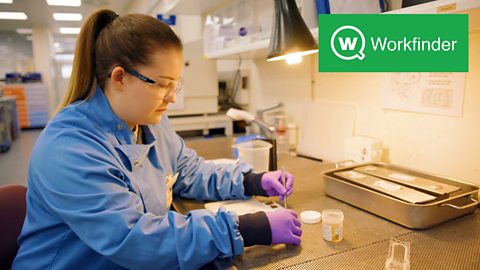
Find work experience placements with Workfinder.
Tips and advice
Help with interviews, writing a CV and all things work experience related.


Karina: co-founder of a green business. video
Karina owns a sustainable drinks company that tackles food and plastic waste.
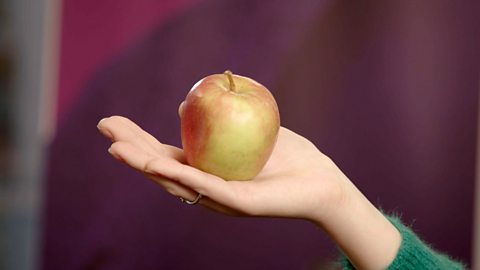
Tom: pizza business owner. video
Tom's entrepreneurial journey started when he was just 15.

Dan: kitchenware maker. video
Dan runs his own business making kitchenware.
